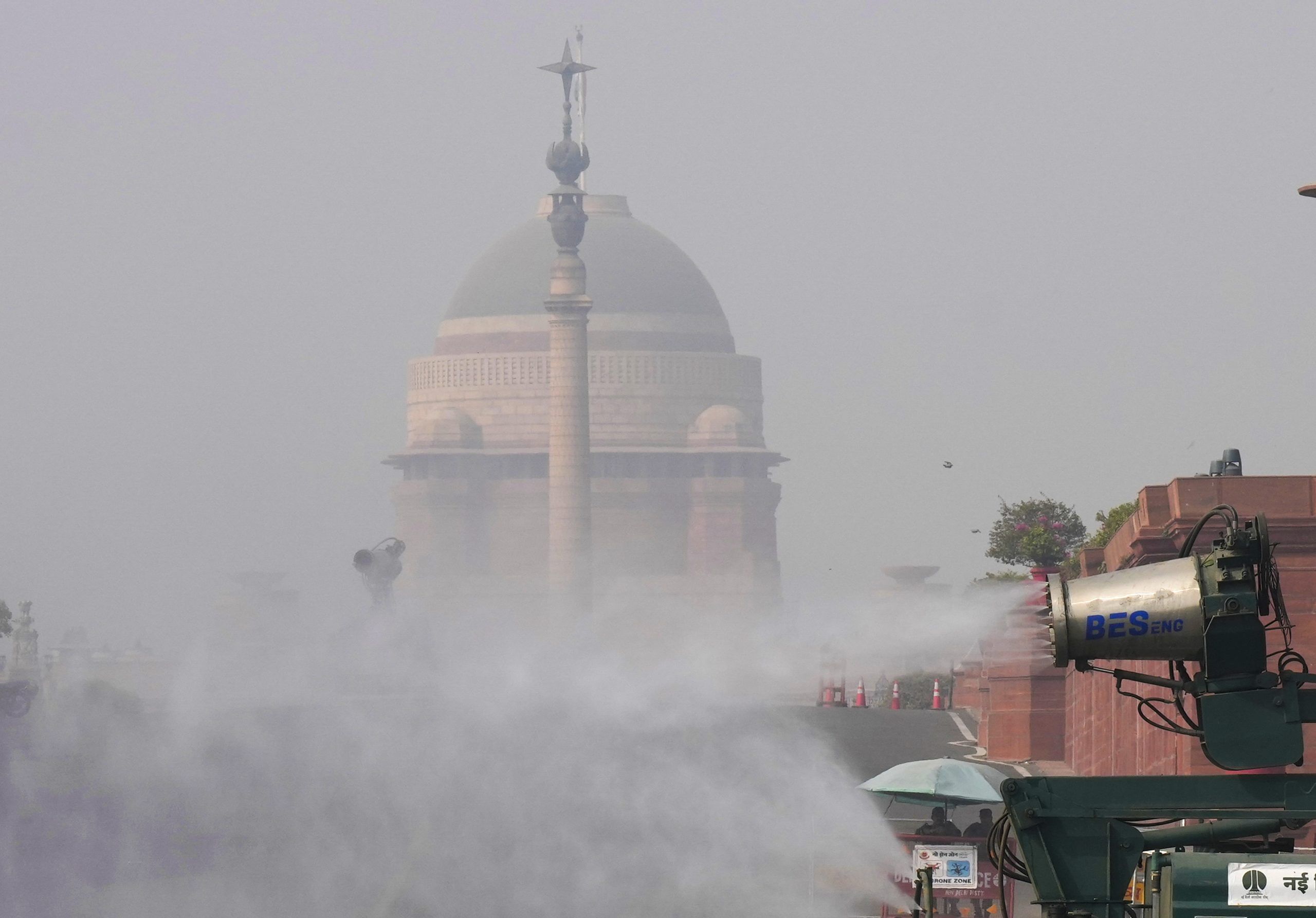New Delhi: Senior Congress leader Priyanka Gandhi Vadra on Sunday raised concerns about the worsening air quality in Delhi. She asked the centre and the BJP-led Delhi government to take immediate action.
Gandhi, who recently returned to the capital after campaigning in Bihar and visiting her constituency in Wayanad, said the stark difference in air quality was “truly shocking.” In a post on X, she described the pollution in Delhi as a “grey shroud.”
Returning to the Delhi air from Wayanad first, then Bachwara in Bihar is truly shocking. The pollution enveloping this city is like a grey shroud thrown over it.
It’s really about time all of us get together regardless of our political compulsions and do something about it. The…
— Priyanka Gandhi Vadra (@priyankagandhi) November 2, 2025
“Returning to the Delhi air from Wayanad first, then Bachwara in Bihar is truly shocking,” she wrote. “It’s really about time all of us get together regardless of our political compulsions and do something about it. The central and state government need to act immediately, we will all support and cooperate with whatever actions they choose to take to mitigate this awful situation.”
The Congress leader also emphasised that the residents of the capital, especially children, senior citizens and those with respiratory ailments are left with “no recourse” as they continue to inhale toxic air year after year. Tagging Prime Minister Narendra Modi, Delhi CM Rekha Gupta and Union environment Minister Bhupender Yadav, she appealed for intervention at the earliest.
AQI reaches ‘severe’ levels
Delhi recorded severe deterioration in the air quality over the past two weeks. Many areas slipped into the ‘severe’ category. Overall AQI readings averaged around 303 across 39 monitoring stations, classified as “very poor.” However, areas such as Wazirpur and Anand Vihar reported ‘severe’ AQI levels.
In an effort to combat the levels of pollution, the Delhi government planned a series of cloud seeding experiments to induce artificial rains. But the attempts failed reportedly due to insufficient levels of moisture in the atmosphere.
Root causes persist
Delhi’s annual battle with toxic air is fuelled by a combination of factors such as stubble burning in the neighbouring Haryana and Punjab, vehicular emissions, industrial activity, construction dust and unfavourable winter atmospheric conditions that trap pollutants close to the ground.
Currently, measures under Stage-II of the Graded Response Action Plan (GRAP) have been implemented across the capital.
